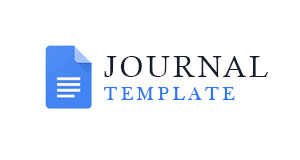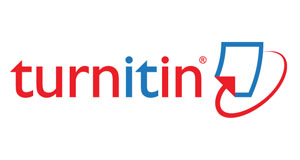Impact of Sea Product Zakat Distribution on The Economy of Coastal Communities (Case Study Fisherman Yogyakarta)
Abstract
Indonesia as one of the largest maritime countries in the world has enormous potential. To overcome this, it is necessary to optimize zakat. In this context, it is necessary to develop seafood zakat products through a productive distribution model so that the potential for community empowerment is realized. The purpose of this study is to identify and develop a distribution model of marine product zakat based on public perception. This research method is qualitative with a comparative study approach. Data collection techniques include observation, documentation, and deep interviews. The object of this research is the coastal communities located on the coast of Depok and the coast of Gunung Kidul, Yogyakarta. The results showed that the zakat on marine products from fishermen was not realized due to the lack of knowledge about the zakat distribution model and there was no collection of zakat funds for marine products. The solution offered by the researcher is to create a model for the distribution of zakat on marine products that will be collected by an organization called the "Network Charity Fishermen" (JAMAN). The JAMAN organization is managed by the Ta'mir of the local mosque so that the implementation of zakat on marine products can be coordinated and the distribution of zakat is realized
Keywords
Full Text:
PDFReferences
Al Arif, M. N. R., Arisman, A., & Harahap, D. (2021). Export, Political Stability, and Growth in Developing-8 Countries. Studies of Applied Economics, 39(2). https://doi.org/10.25115/eea.v39i2.3448
Arico, Z., & Jayanti, S. (2017). Processing of Plastic Waste Into Creative Products As an Economic Improvement for Coastal Communities. MARTABE, 1(1), 1–5.
Arisman, A., Al Arif, M. N. R., & Harahap, D. (2021). Trade Agreement and Economic Growth: Evidence in D-8 Countries. Signifikan: Jurnal Ilmu Ekonomi, 10(2), 311–324. https://doi.org/10.15408/sjie.v10i2.21457
Brotherhood, Yusni. 2015. Dig Potency Resource sea Indonesia.
Cahyani, U. E., Ardiansyah, M., & Sunaryati, S. (2020). Islamic Social Reporting and Financial Distress In List of Sharia Securities. IQTISHADIA, 13(2), 157. https://doi.org/10.21043/iqtishadia.v13i2.7756
Cahyani, U. E., Hanafi, S. M., & Masruri, S. (2022). The Nexus Between University Support and Entrepreneurial Mindset: Does Entrepreneurship Education Matter? Indonesian Journal of Business and Entrepreneurship. https://doi.org/10.17358/ijbe.8.3.351
Cahyani, U. E., Masruri, S., & Hanafi, S. M. (2022). DOES ENTREPRENEURSHIP EDUCATION MATTER FOR ISLAMIC HIGHER EDUCATION STUDENTS’ ENTREPRENEURIAL READINESS? Jurnal Ekonomi Bisnis dan Kewirausahaan, 11(2), 258. https://doi.org/10.26418/jebik.v11i2.55092
Cahyani, U. E., Sari, D. P., & Afandi, A. (2022). Determinant of Behavioral Intention to Use Digital Zakat Payment: The Moderating Role of Knowledge of Zakat. ZISWAF: JURNAL ZAKAT DAN WAKAF, 9(1), 1. https://doi.org/10.21043/ziswaf.v9i1.13330
Chairir Iswanaji, Aziz Muslim, MZNH (2022). Ijarah Collaborative Service Model In Sharia Banking. Indonesian Interdisciplinary Journal of Sharia Economics (IIJSE), 5(2), 702–718.
Fathaniyah, L., & Makhrus, M. (2022). The Role of Zakat Management Organizations in Community Empowerment in Banyumas Regency. Scientific Journal of Islamic Economics, 8(1), 632-640Hafidhuddin, Didin. 1998. Zakat Infaq Alms. Jakarta: Gema Insani Press Hafidhuddin
Hafidhuddin, Didin. 2002. Zakat in the Modern Economy. Jakarta: Gema Insani Press.
Harahap, D. (2017). Determinan Dana Pihak Ketiga Bank Syariah di Indonesia: Model Vector Autoregresive. IQTISHADIA, 10(1). http://dx.doi.org/10.21043/iqtishadia.v10i1.2432
Hasibuan, A. N. (2022). The Role of Company Characteristics in the Quality of Financial Reporting in Indonesian. Jurnal Ilmiah Peuradeun, 10(1), 1. https://doi.org/10.26811/peuradeun.v10i1.666
Hayeeharasah, F., Sehvises, S., & Ropha, H. (2013). The Timeline of Zakah. Procedia - Social and Behavioral Sciences, 88, 2–7. https://doi.org/10.1016/j.sbspro.2013.08.474
Hidayat, S., Wibowo, H., & Doddy, M. (2019). The Impact Of Productive Zakat On The Economic Empowerment Program Based On Social Return On Investments (SROI): Case Study Of PT Karya Masyarakat Mandiri. Journal of Islamic Banking and Economics, 7(1), 79-94.
Huda, Nurul, et al. 2008. Islamic Macroeconomics. Jakarta: PT Fajar Interpratama Mandiri.
Iswanaji, C., Zidny, M., Hasbi, N.', Salekhah, F., & Amin, M. (nd). Implementation of the Analytical Networking Process (Anp) Distribution of Zakat on Sustainable Community Economic Development. Tabarru Journal': Islamic Banking and Finance, 4(1), 2021.
John, R. (2015). The Rout led ge C o mp anion to the St udyof Re li gi on Se EC and E-Edition.
July Commander Saragih. (2015). Poverty Alleviation Policy in the Special Region of Yogyakarta (Government Policy to Reduce Poverty in the Special Region of Yogyakarta).
Karim, A Adiwarman. 2007. Islamic Macroeconomics. Jakarta: PT Raja Grafindo Persada.
Kasri, RA, & Putri, NIS (2018). Fundraising Strategies to Optimize Zakat Potential in Indonesia: An Exploratory Qualitative Study. Al-Iqtishad: Journal of Islamic Economics, 10(1), 1–24. https://doi.org/10.15408/aiq.v10i1.6191
Kusmantanto, Tridoyo. Empowerment of Marine Resources, Fisheries, and Sea Transportation in the XXI Century.
M. Zidny Nafi 'Hasbi. (2021). Portrait Of Economic Life In The Age Of The Prophet. Al-Mutsla: Journal of Islamic and Social Sciences, 3(1), 1–8.Monzer Kahf. (1999). The Performance Of The Institution Of Zakah In Theory And Practice.
Mardjoeki. 2012. Empowerment of the north coast community of Cirebon district. Vol 1 no.1.Jurnal Ekonomi ISSN:2302-7169.
Muhammad, SV (2009). Indonesia Towards the World Maritime Axis. www.DPR.go.id
Powell, CL (2003). Remarks at the World Economic Forum.
Qadir Abdurrachman. 1998. Zakat In Mahdhah And Social Dimensions. Jakarta: PT Raja Grafindo Persada.
Qardawi, Yusuf. 1996. Zakat Law. Literature Between Nusa.
Rakhmidyanto. Dan Sinulingga, Wesly. Sustainable Indonesian Maritime Economy. An employee of the Fiscal Policy Agency of the Ministry of Finance.
Rasyid, A. (2019). DINAMIKA PELAKSANAAN SERTIFIKASI HALAL PADA PRODUK MAKANAN DAN MINUMAN DI KOTA MEDAN, SIBOLGA DAN PADANGSIDIMPUAN. MIQOT: Jurnal Ilmu-ilmu Keislaman, 43(2), 167. https://doi.org/10.30821/miqot.v43i2.640
Rianto, Nur. 2010. Macroeconomic Theory of Islam. Bandung: Alphabeta.
RICO NUR ILHAM, IRADA SINTA, MANGASI SINURAT, ABDUL NASSER HASIBUAN, & LAKHARIS INUZULA. (2022). THE EFFECT OF MACRO ECONOMIC FACTOR ON STOCK RETURN OF STATE-OWNED ENTERPRISES (BUMN) LISTED ON THE INDONESIA STOCK EXCHANGE. https://doi.org/10.5281/ZENODO.6938564
Riwanto, DS (2017). A Comparative Study of the Perception of Coastal Communities in Developing the Method of Distribution of Marine Zakat. In International Journal of Zakat (Vol. 2, Issue 2).
Rukiah, R., Nuruddin, A., & Siregar, S. (2019). Islamic Human Development Index di Indonesia (Suatu Pendekatan Maqhasid Syariah). Jurnal Istinbath, 18(2). https://www.istinbath.or.id/index.php/ijhi/article/view/171
Suhria, Nihayatus. 2010. Income of Fishermen with Potential Zakat. Compiled and submitted to the sharia faculty of Sunan Kalijaga State Islamic University, Yogyakarta.
Syahril, S., Abdullah, W., & Syahruddin, S. (2019). Model of Economic Empowerment with Islamic Philanthropy in Realizing Community Welfare. IQTISHADIA Journal of Islamic Economics & Banking, 6(1), 25-40
Yusuf Qardawi, D. al. (2013). Kingdom of Saudi Arabia ministry of higher education a comparative study of zakah, regulations, and philosophy in the light of Qur'an and Sunnah.
DOI: https://doi.org/10.24952/tijaroh.v8i2.5854
Refbacks
- There are currently no refbacks.
Copyright (c) 2022 At-tijaroh: Jurnal Ilmu Manajemen dan Bisnis Islam

This work is licensed under a Creative Commons Attribution-ShareAlike 4.0 International License.














